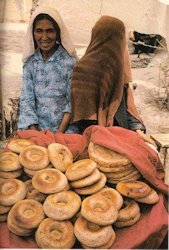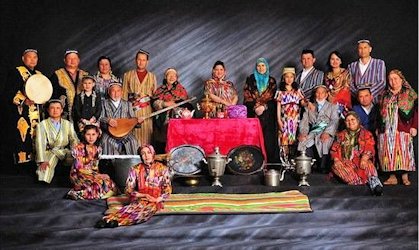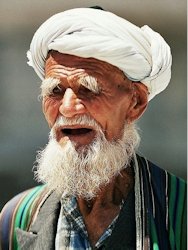|
49. Chinese Nationalities (Uzbek Minority) (Ozbek) -- Minorities by Descending Populations |
||

|

|

|
| Uzbek Lad-es | Uzbek People | Uzbek Man |
|
The Uzbek ethnic groups, with a population of 14,800, mainly live in compact communities in Yining, Tacheng, Kashgar, Urumqi, Shache, and Yecheng in the Xinjiang Uigur Autonomous Region. The name Uzbek first originated from the Uzbek Khan, one of the local rulers under the Mongol Empire in the 14th century. In the 15th century, with the breakup of the Mongolia Empire, a number of Uzbek merchants traveled along "the Silk Road" through Xinjiang to do business in inland areas. Some of them settled in certain cities in Xinjiang and were later named Uzbek. Most Uzbek people are city dwellers. They mainly engage in trade, education, science, and handcraft industries. A small part of the population, living in southern Xinjiang, is engaged in agriculture. The Uzbek ethnic group has its own language that belongs to Turki Austronesian of the Altai Phylum. Uzbek characters are phonetic words based on the Arabian minbet. Due to frequent economic exchanges with the local Uigurs and Kazaks, Uzbek people widely use the Uigur and Kazak languages The origins of the Uzbeks go back to the fourteenth century. They are Islamic Turkic speakers and farmers with dress and food very similar to those of the Uygurs. The Silk Road threading through Xinjiang's deserts and mountains carried China's trade westward and eventually opened the way for Islam's expansion eastward. Seven of the 12 minorities here are Muslim, most speak Turkic languages and for centuries used Arabic script. The Uzbek are found in Xinjiang Autonomous Region near the Russian border. They are part of the Altaic Turkic ethno linguistic group. Shaped like bagels and pancakes, crusty "nan" awaits hungry customers at a Kashgar bazaar. The veiled vender and her squinting partner are Uzbeks. |
||
| Return to Chinese Nationality List On to No. 50 Minority Monba ⇨ | ||